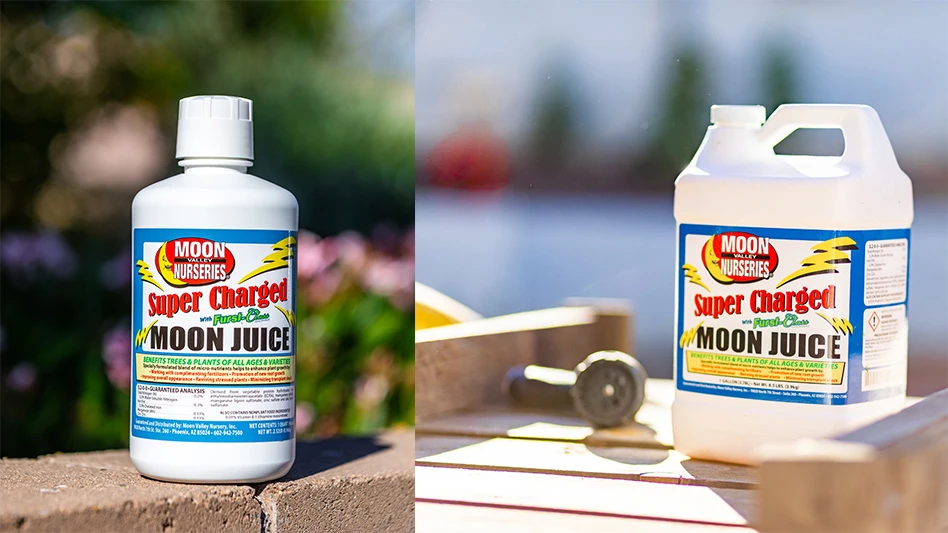
Adobe Stock

The first time it happened to Mountain Strong Hemp Company in Steamboat Springs, Colo., in late June, a pilot refused to take off with a shipment of legal hemp. The cargo included clones that she’d mistaken as marijuana—hemp plants that were destined for Shady Lane Farms in Tennessee, according to Mountain Strong Hemp Company’s founder and CEO, Nathan Brough.
When police were called to the scene and verified the shipment was indeed legal, the pilot still refused to carry the packages, Brough says.
“FedEx [the courier] returned the package to us,” he adds, pointing out that when this interview was conducted, the company was still waiting for a refund.
A day later, Mountain Strong Hemp Company turned to UPS to ship the hemp—and police were again called to inspect the packages. Thanks to detailed paperwork, officers “realized that it was hemp and was OK to ship,” recalls Brough. But even so, UPS was still hesitant to proceed with the shipment. After complaints from Shady Lane Farms, UPS agreed to send the hemp to its final destination—but “told us not to ship with them again,” Brough says.
Unfortunately, stories like this are all too common for companies attempting to ship hemp.
“There's a lack of education about what hemp is and how it's different from the intoxicating cannabis that contains significant amounts of THC,” explains Josh Hendrix, director of U.S. hemp production for CV Sciences. It’s that lack of education can often lead to problems in transit.
“When you have a truck full of green hemp material fresh out of the field, to the average person, it's automatically marijuana due to the look and smell—and that's very unfortunate, but it is just where we are right now with this crop, for the most part,” Hendrix says.
Big Sky Scientific has encountered several problems while attempting to receive or ship its hemp products. In January, Idaho law enforcement stopped 6,700 pounds of hemp on the way from an Oregon grower to Big Sky Scientific in Colorado. The driver was arrested and charged with felony drug trafficking. Since then, “we’ve been stopped a few more times,” says Big Sky Scientific CEO Ryan Shore.
“Police officers have a very difficult job, and I think it’s important we acknowledge that,” Shore says. “They are required to stop marijuana and allow hemp to pass. How can they make that determination? There is currently no field test that can accurately assess the difference.” And that, Shore explains, “is why it is so important to make their job easier.”
With that in mind, here are some lessons learned from hemp shipments gone wrong—so that you can avoid them, and the costly legal fines and potential jail time that go with them.
Make sure the driver is educated about what he or she is transporting.
“We make sure that our driver can communicate clearly to the officer and is educated about what they are shipping,” Shore says. To do that, “we always explain all our transportation documents to each driver on every shipment” before he or she hits the road, Shore says.
There's a lack of education about what hemp is and how it's different from the intoxicating cannabis that contains significant amounts of THC.”
Consider shipping with USPS.
After its experience with FedEx and UPS, Mountain Strong Hemp Company now uses the U.S. Postal Service to ship its hemp, says Brough.
“We finally learned that USPS is the only way to ship CBD and hemp products,” he says. “USPS goes by the law and not company policy.”
Hendrix agrees that USPS might be your best bet.
“You are seeing much more support from the USPS, USDA, and other federal agencies clarifying the legality of interstate commerce as it pertains to hemp material from the farm, processed goods, and finished products,” he says.
Keep an accurate, detailed paper trail.
According to Hendrix, “the paper trail on hemp and hemp goods is the obvious answer” to shipment problems.
“Always having the legal documents required by your state and the state you're going to is a must,” Hendrix says. And so is “good communication,” he adds.
Big Sky Scientific prepares all relevant shipping documents in a binder for safekeeping. Shore recommends you also “make sure someone will be available to answer the phone should the police officers want to talk to somebody at your business as well as the driver.”
Create clear labels and bills of lading.
Big Sky Scientific makes sure its hemp products are clearly labeled before they’re shipped, and “we make sure our bill of lading [BOL] is completely accurate,” Shore explains. A BOL functions as a contract between a freight carrier and shipper, so it’s very important that it’s accurate. Accuracy can prevent misunderstandings between the shipper and customers.
Jillian Kramer is a journalist based in Cleveland, Ohio. Her work has been published in Food & Wine, Travel + Leisure, and more.
Get curated news on YOUR industry.
Enter your email to receive our newsletters.
Explore the September 2019 Issue
Check out more from this issue and find your next story to read.
Latest from Nursery Management
- Society of American Florists accepting entries for 2025 Marketer of the Year Contest
- Sustainabloom launches Wholesale Nickel Program to support floriculture sustainability
- American Horticultural Society welcomes five new board members
- Get to know Christopher Brown Jr. of Lancaster Farms
- American Floral Endowment establishes Demaree Family Floriculture Advancement Fund
- The Growth Industry Episode 3: Across the Pond with Neville Stein
- The Growth Industry Episode 2: Emily Showalter on how Willoway Nurseries transformed its business
- March 2025 issue recap






